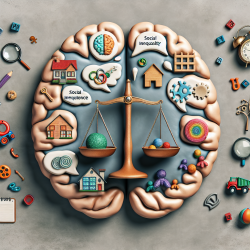Introduction
As practitioners dedicated to enhancing the lives of our patients, understanding the intricate connections between various health domains is crucial. Recent research has unveiled a surprising link between oral health and cognitive function in the aging population, offering new avenues for intervention and care. This blog delves into the findings of the study titled "Associations of oral health status and swallowing function with cognitive impairment in the aging population: a cross-sectional study" and explores how these insights can be leveraged by speech-language pathologists.
The Study: Key Findings
The study conducted in Changsha, Hunan Province, China, analyzed the oral health and cognitive function of 215 participants aged 50 years and older. The research revealed a statistically significant correlation between the number of teeth remaining and cognitive function. Notably, tongue pressure in male participants emerged as a significant independent variable associated with cognitive impairment.
Key findings include:
- A positive correlation between the number of remaining teeth and cognitive function.
- Lower tongue pressure in males correlated with lower cognitive function scores.
- Oral health and swallowing functions were generally in good condition among participants.
Implications for Practitioners
For speech-language pathologists, these findings highlight the importance of incorporating oral health assessments into cognitive evaluations. Here are some actionable steps practitioners can take:
- Incorporate Oral Health Assessments: Regularly assess oral health indicators such as tongue pressure and the number of remaining teeth in patients, especially those at risk of cognitive decline.
- Collaborate with Dental Professionals: Work closely with dental professionals to develop comprehensive care plans that address both oral and cognitive health.
- Educate Patients and Families: Raise awareness about the link between oral health and cognitive function, emphasizing the importance of maintaining good oral hygiene.
Encouraging Further Research
While this study provides valuable insights, it also underscores the need for further research to explore the mechanisms underlying the observed associations. Practitioners are encouraged to contribute to this growing field by participating in or initiating research projects that delve deeper into the relationship between oral health and cognitive function.
Conclusion
Understanding the connection between oral health and cognitive function opens new possibilities for early intervention and improved patient outcomes. By integrating these findings into practice, speech-language pathologists can play a pivotal role in enhancing the quality of life for the aging population.
To read the original research paper, please follow this link: Associations of oral health status and swallowing function with cognitive impairment in the aging population: a cross-sectional study.










